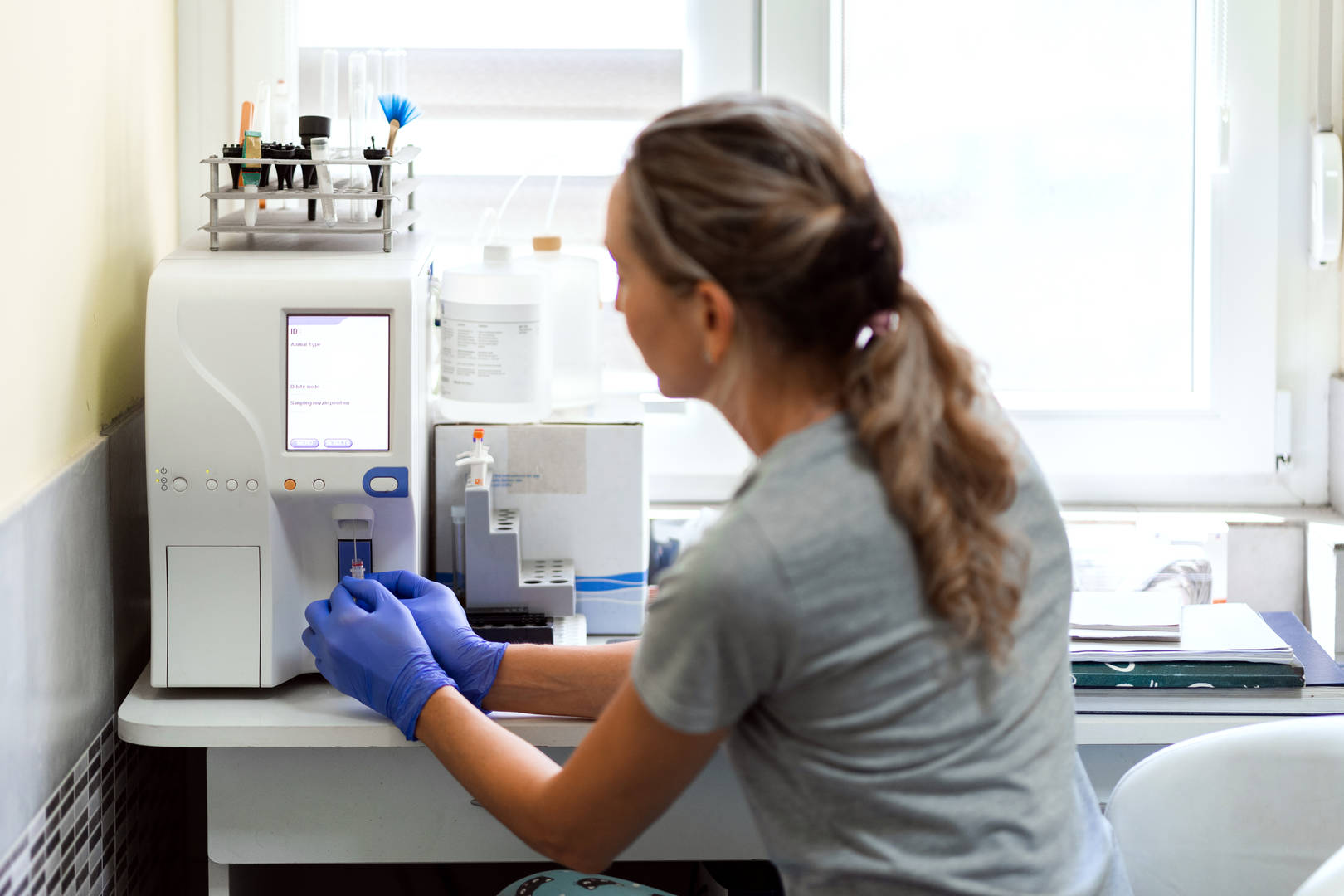Preventive care matters for your veterinary equipment, too
By MWI Animal Health
Equipment malfunctions impact revenue, staff, and patient care

As a veterinary practice owner, you know how crucial your equipment is for effective patient care. You're probably also familiar with machine breakdowns. “Every veterinarian has experienced being halfway through a dental (cleaning) and having their dental machine break," says Rick Warter, Director of Sales, Capital Equipment, and Solutions at MWI Animal Health. “Everyone has had IV pumps go out, and everyone has had anesthesia machine issues where their patients are having potentially life-threatening problems that they've had to deal with."
3 reasons equipment checkups are important
Regular maintenance of your machines is critical to running a smooth, profitable clinic. Equipment breakdowns and malfunctions affect not only your bottom line, but they also impact both your clients and your staff.
1. Impact on practice revenue
Remember that the cost of fixing your equipment is not the only cost associated with an equipment breakdown, Warter says. You'll need to use a staff member's time to reschedule patients. You may also miss out on some revenue due to clients not rescheduling.
Then there's the risk of losing clients to another clinic because you can't provide a service. “Some of those clients may decide, 'I'm not waiting. I've got family coming into town next week and I don't want my dog's breath to stink, so I'm going to find someone who will do a tooth cleaning now,' and they'll take their pet to another clinic to have that service done," says Warter. This could result in your client transferring to the other clinic permanently.
Along with all of this, “it looks bad to have your equipment breaking down and not being able to provide service," Warter says. “It doesn't give an overall good impression to a customer." Your clients may think your practice doesn't stay up to date or invest in the future.
2. Impact on pet parents
Warter gives this example: Let's say a pet parent drops their pet off at your clinic to get their teeth cleaned under anesthesia. If the machine breaks before or during the procedure, it can't be completed. The patient has to be woken up and rescheduled to go under anesthesia yet again. This is extremely inconvenient to pet parents and could shake their trust in your practice. Plus, having to call a pet parent to explain the situation is not a good experience for anyone involved.
There's also the very real issue of patient safety should you have a malfunction. Certain devices such as anesthesia vaporizers and IV pumps need to be calibrated regularly to make sure they're delivering the right amounts. If they're not, you're putting your patients at risk of an adverse event or even death.
For example, “if you're never having your IV pump calibrated and you set it to deliver 120 mL and it delivers 400 mL because it's not working correctly, that could cause severe complications because you've over-delivered fluid," Warter says. “Conversely, if it's delivering 50 mL to a pet that's dehydrated, you're not going to be meeting the medical needs of that pet."
3. Impact on staff
When equipment isn't working, it can take days to get it fixed, which affects your staff and your workflow. Someone will need to call patients to reschedule visits while the machine is down. Allocated staff resources will have to be changed because technicians who were scheduled to do procedures with the broken machine will need to find other work to do during that time.
“A routine dental takes about an hour. If you're doing two a day for five days, that's 10 hours of work you've scheduled for technicians that they're not going to be able to do," says Warter. “They always have things to do, but you're not going to be generating the same revenue in those time spans."
And once your machine is back up and running, you'll have to reschedule those 10 hours. “Now you've got 20 hours' worth of work to do because you've got the 10 that was normally scheduled and the extra 10 that you missed," Warter says. “It has an impact on staff morale to have to do those catch-ups."
Improper maintenance of your equipment also makes your staff less efficient. For example, if a centrifuge is not routinely maintained, it will become off-balance. “You have to have someone stand with it or find a workaround or it's going to vibrate off the table. That's not super-efficient," says Warter. “Every piece of equipment, as it ages and is not well maintained, starts to get those little nuances where you have to adjust what you are doing just to get it to work."
But this can cause frustration for your staff, especially when their focus is on patient care. “When I reach for an IV pump, I want to know that it delivers 100 mL when I set it for 100 mL," says Warter. “I don't want to have to spend 15 minutes trying to figure out what's wrong." Unpredictable equipment could even result in your clinic staff not using it at all, affecting patient care.
Maintenance levels
There are three levels of equipment maintenance, according to Warter.
|
LEVEL I |
LEVEL II |
LEVEL III |
|
|
PURPOSE |
Routine maintenance |
Preventive maintenance |
Break/fix |
|
PERFORMED BY |
Clinic staff |
Biomed service technician |
Biomed service technician |
|
HOW OFTEN |
Daily, weekly, monthly |
Quarterly, biannually, annually |
As needed |
|
SERVICE EXAMPLES |
Lubricating handpieces, draining compressor, inspecting lightbulbs, cleaning autoclave |
Calibration of equipment such as IV pumps and anesthesia vaporizers |
Breakdown or malfunction of equipment that needs to be fixed |
|
GREATEST IMPACT ON |
Equipment longevity |
Equipment accuracy and reliability |
Financials |
Level I: Routine maintenance
This is done at your practice by clinic technicians on a daily, weekly, or monthly basis. These tasks are best done during downtime when your staff isn't focused on patient care. Just like your car needs regular maintenance, “if you don't take care of your veterinary equipment, it will break down sooner and the lifespan will be shorter," says Warter.
Level I maintenance includes services such as lubricating handpieces, draining the compressor, inspecting the procedure and exam lightbulbs, and cleaning the autoclave. These tasks have the biggest impact on your equipment's longevity.
A big reason it's beneficial to have your staff members perform Level I services is that it helps them become familiar with the equipment. “If you have a pet under anesthesia and your anesthesia machine starts to have a problem, you want the person that's going to troubleshoot it (to be) comfortable with that piece of equipment and know what's going on," Warter says.
Level II: Preventive maintenance
A biomed service technician performs Level II services quarterly, biannually, or annually, depending on the veterinary equipment. Preventive maintenance involves services such as IV pumps and vaporizer calibrations. It has the greatest impact on your equipment's accuracy and reliability.
Level III: Break/fix
This is performed as needed when your veterinary equipment breaks and needs to be repaired. Level III service has the biggest impact on your financials.
Planning for equipment service
Maintaining and servicing your equipment regularly means you and your staff can keep your focus where it should be — on caring for your patients, not on equipment care. “Equipment needs to work in the moment, when we're taking care of our patients," says Warter. “That's not when we should be taking care of our equipment."
Warter recommends keeping maintenance schedules to track when Level I and II equipment services need to be performed. This makes sure you're not left vulnerable when you're trying to care for patients. Tracking Level I services can be as simple as putting a piece of white tape on the equipment and writing the date it was checked or serviced. “You have to have a process in place to drive those behaviors or else it's not going to get done and you'll always have issues," Warter says.
Being aware of the lifespan of each piece of equipment is also helpful because you can budget to buy a replacement before it breaks down. “Know that on average, this autoclave is going to last 10 years, so in 9.5 years, I'm just going to buy a new one and sell that one on the secondary market so that I don't have to experience outages or shortages or patient impact," says Warter.
The bottom line
Veterinary equipment breakdowns and outages result in lost revenue and potentially poor medical outcomes for your patients. They also affect your staff, your clients, and your reputation.
You can avoid equipment failure with routine maintenance of your equipment, along with scheduling regular preventive maintenance according to each piece of equipment's specifications. Keeping your equipment in tip-top shape enables you to be more efficient, provides steady revenue, and most importantly, allows you to focus on effectively caring for your patients.





